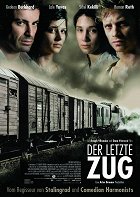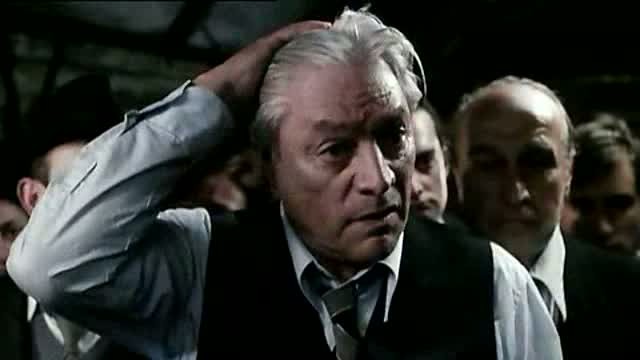Drehbuch:
Stephen GlantzKamera:
Joseph VilsmaierMusik:
Chris HeyneBesetzung:
Gedeon Burkhard, Lale Yavas, Lena Beyerling, Sibel Kekilli, Roman Roth, Brigitte Grothum, Hans-Jürgen Silbermann, Sharon Brauner, Juraj Kukura (mehr)Inhalte(1)
Kriegsjahr 1943. Die Nazis wollen Berlin endgültig “judenfrei” machen. Über 70.000 Juden wurden schon aus der Hauptstadt deportiert. Im April rollt vom Gleis 17, im Bahnhof Grunewald, ein Zug mit 688 Juden – zusammengepfercht in Viehwaggons – Richtung Auschwitz. Ob jung und alt, Akademiker, Künstler oder Boxer, das spielt hier keine Rolle mehr. Die Reise in den Tod dauert sechs Tage. Ein Kampf gegen unerträgliche Hitze, Durst und Hunger beginnt. In ihrer großen Verzweiflung versuchen einige aus der rollenden Gefängnishölle auszubrechen, darunter auch das Ehepaar Henry und Lea Neumann (Gedeon Burkhard und Lale Yavas) und die junge Ruth Zilberman (Sibel Kekilli). Doch die Zeit drängt – und Auschwitz rückt immer näher… (Concorde Filmverleih)
(mehr)Kritiken (2)
Der letzte Zug habe ich im März 2008 in einem uralten Kino gesehen. Das hat dem Film eine außergewöhnliche Stimmung verliehen und meinen positiven Eindruck verstärkt. Man sollte das Vorhaben der Autoren schätzen, dass sie die Intensität der Vorhölle zeigen wollten. Andere Filmemacher zeigen nur die Hölle. Der letzte Zug, dessen ganze Handlung in einem Zug nach Auschwitz spielt, endet mit der Ankunft in der Hölle. Zu diesem Zeitpunkt ist das Publikum so entsetzt, dass es nicht mehr weitergehen will. Es hat gereicht. Am Anfang wirkt der Film wie ein Regie-Debüt eines naiven Regisseurs von Theaterkomödien. Allmählich verwandelt er sich aber in ein depressives Drama, das die schwüle Stimmung und den bewährten Aufkleber "so war es wirklich" nutzt. Es ist nur schade, dass der Film nicht mehr die einzelnen Figuren genutzt hat.
()
This is one in a long series of films that attempt to convey the horror of the Holocaust to contemporary audiences. However, I certainly didn't feel like I was having an exceptional cinematic experience. Some of the reservations mentioned in the comments have a real basis. The film is a bit rough in places and some scenes look unnatural, and yet the foundation, i.e., the drama of people condemned to death, who are herded into cattle cars and die of thirst in tropical heat, still functions. The incident with the spilled bucket, the small dramas resulting from a lack of personal space, and clinging to futile hopes, are all powerful moments that make the film function decently, and the cast is certainly not bad. The film is most harmed by the fact that it was produced in a German setting and tries to justify the idea that many Germans thought differently and tried to "help and protect" however they could despite the repulsive nature of Nazism. That is why there is a scene where German soldiers returning from the eastern front share their supplies with a Jewish transport and even come into conflict with the guarding SS officers, risking a shootout with their commander. Anyone who has any idea about the intense indoctrination of anti-Semitism that the Wehrmacht was subjected to, the strong tradition of anti-Semitism even before the fascists came to power, the extent to which units in the east were involved in war crimes, the level of identification with the regime that existed in the army, and the draconian punishments for any cooperation with the enemy, can only laugh at such fantasy. Especially when they realize the strict discipline that service in the Wehrmacht demanded and the privileged position that the SS units held. No, not even my fondness for Dana Vávrová will lead me to give it four stars. Overall impression: 65%.
()

